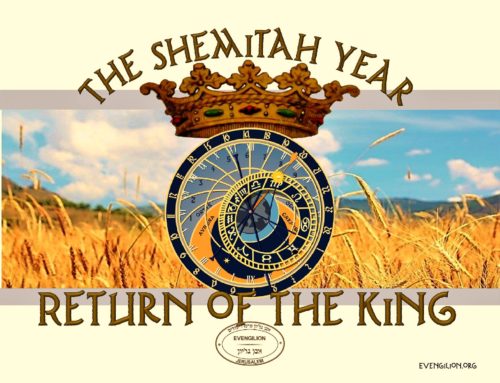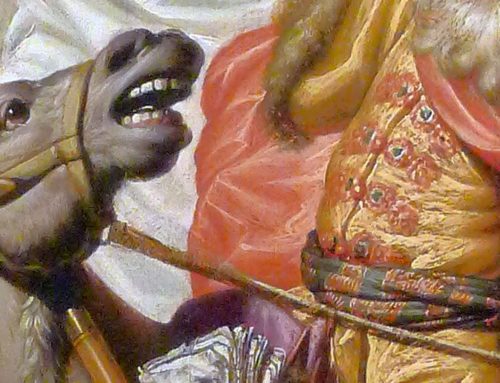The archaeologist pulled the object from the soil, ancient lines of Hebrew text filled the shard, a warning cry to the king of Jerusalem, “We cannot see any more, the fire-signals of Azekah”.[1] Those who visit Israel have long noted how ancient fortified cities, visible miles apart, communicated by “signal fires”. In the waning days of Judah’s Southern Kingdom, Jeremiah tells us that only two fortifications remained outside Jerusalem – Lachish and Azekah. The commander of Lachish confirmed this with these chilling words, “the fires of Azekah were no longer visible”. (Letter IV) Soon the fire of Lachish would be extinguished by the Babylonians as well. [2]
“When the king of Babylon’s army fought against Jerusalem and all the cities of Judah that were left, against Lachish and Azekah; for only these fortified cities remained of the cities of Judah.” Jeremiah 34.7 NKJV
These words scribbled on a shard are not a curiosity of Israel’s past, but a warning letter to our generation. Daily the news gleefully reports of pastors, worship leaders and laypersons alike who claim to no longer believe in God or follow Yeshua.
The extinguishing of Azekah’s fire, a city set on a hill, sent fear through the camp of Lachish. With every extinguished flame of a believer, the Church must awake!
I. Our Lamps are going out
“And at midnight a cry was heard: ‘Behold, the bridegroom is coming; go out to meet him!’ Then all those virgins arose and trimmed their lamps. And the foolish said to the wise, ‘Give us some of your oil, for our lamps are going out.’” Matthew 25.6-8 NKJV
How often has the camper found that his flashlight flickers off at the start of a night hike? Batteries are easy to come by. Spiritual oil, however, can only be purchased from the Lord. At some point those who no longer believe replaced their lamps fuel with a substitute of “spirituality”. Yeshua spoke of abiding in Him, the vine. In the comfort of health, prosperity, and peace we may not sense the need of a lamp. But, Yeshua spoke of a coming midnight, and the final cry “the Bridegroom is coming”. Then it will be too late to buy oil. There will only be time to trim our wick and go to meet him. We must be wise, for the lamp of America’s Church is going out.
II. Awaken from Your Sleep
“But while the bridegroom was delayed, they all slumbered and slept.” Mathew 25.5 NKJV
 Both the wise and foolish virgins fell asleep. We too are witnessing a lulling of our senses, unaware that the return of the Lord is at hand. For a moment, let us return to that last outpost witnessing the fall of Judah, and their commander Hosha’yahu. Having received word from Jerusalem, he frustratedly replied to a man named Ya’ush. Apparently, Ya’ush sent the commander the latest words from a prophet in Jerusalem. A message Yosha’yahu found demoralizing. He implored Ya’ush to not send such disheartening messages.
Both the wise and foolish virgins fell asleep. We too are witnessing a lulling of our senses, unaware that the return of the Lord is at hand. For a moment, let us return to that last outpost witnessing the fall of Judah, and their commander Hosha’yahu. Having received word from Jerusalem, he frustratedly replied to a man named Ya’ush. Apparently, Ya’ush sent the commander the latest words from a prophet in Jerusalem. A message Yosha’yahu found demoralizing. He implored Ya’ush to not send such disheartening messages.
“But behold, the words…are not good, (but) to weaken thy hands…”[3] Letter VI, Trans. Albright/Gordon
Such a message might have even been that of the prophet Jeremiah himself to King Zedekiah.
“This is what the Lord, the God of Israel says: ‘Go and speak to Zedekiah king of Judah and say to him, This is what the Lord says: ‘Behold, I am handing this city over to the king of Babylon, and he will burn it with fire. And as for you, you will not escape from his hand, for you will assuredly be caught and handed over to him; and you will see the king of Babylon eye to eye, and he will speak with you face to face, and you will go to Babylon.’” Jer. 34.2-3 NKJV
Hosha’yahu did not want to awaken to his moment. And so, he contented himself to look for the fire in other outposts, until one day, there were no more fires.
III. Behold, the Bridegroom is Coming
“And in the midst of the seven lampstands One like the Son of Man, clothed with a garment down to the feet and girded about the chest with a golden band.” Revelation 1.13 NKJV

Lachish Letter IV
The Son of Man, Messiah of Israel, in the midst of the lampstands is our only hope. His presence fuels our menorah’s flame. I write this letter from a hill looking toward Jerusalem to the churches in America and around the world. I implore you, while it is day, obtain the “oil of salvation”. Burn bright in this midnight hour! I feel the burden that Lachish’s commander must have felt not seeing Azekah’s signal fire. Twitter, Facebook, and the media seem to rejoice in each extinguished, former believer. But why has their flame gone out? Because they failed to remain connected to the source of their faith. Even today, we are witnessing a falling away and the removal of candlesticks. Ultimately, Lachish and Jerusalem also fell, and the Babylonians carried away the Temple Menorah.
Conclusion
“Remember therefore from where you have fallen; repent and do the first works, or else I will come to you quickly and remove your lampstand from its place—unless you repent.” Revelation 2.5 NKJV
Yeshua, the Bridegroom will return for a spotless bride who has made herself ready. This will be a bride that not only has her lamp with her but has filled it with oil. The Apostle Paul warned us that in the end times some would depart from the faith for other forms of religion.
“Now the Spirit expressly says that in latter times some will depart from the faith, giving heed to deceiving spirits and doctrines of demons” I Timothy 4.1 NKJV
They exchange the doctrines of Messiah for doctrines of devils, giving heed to deceiving spirits. Many who are leaving the faith proclaim that they are spiritual, yet they are not moved by the Spirit of God.
The Bridegroom has spoken. Remember and repent or face the removal of our lampstand. May the Lord give us ears to hear.
Shavua Tov from Zion
[1] “Azekah.” Ancient Israel Studies International MA in Ancient Israel Studies | Tel Aviv University. Accessed May 27, 2021. https://en-humanities.tau.ac.il/MAarch.Azekah.
[2] “Hebrew Letter (Ostracon).” The Israel Museum, Jerusalem, February 17, 2021. https://www.imj.org.il/en/collections/394413.
[3] Albright, W. F. “The Oldest Hebrew Letters: The Lachish Ostraca.” Bulletin of the American Schools of Oriental Research, no. 70 (1938): 11-17. Accessed May 27, 2021. doi:10.2307/1354816.




